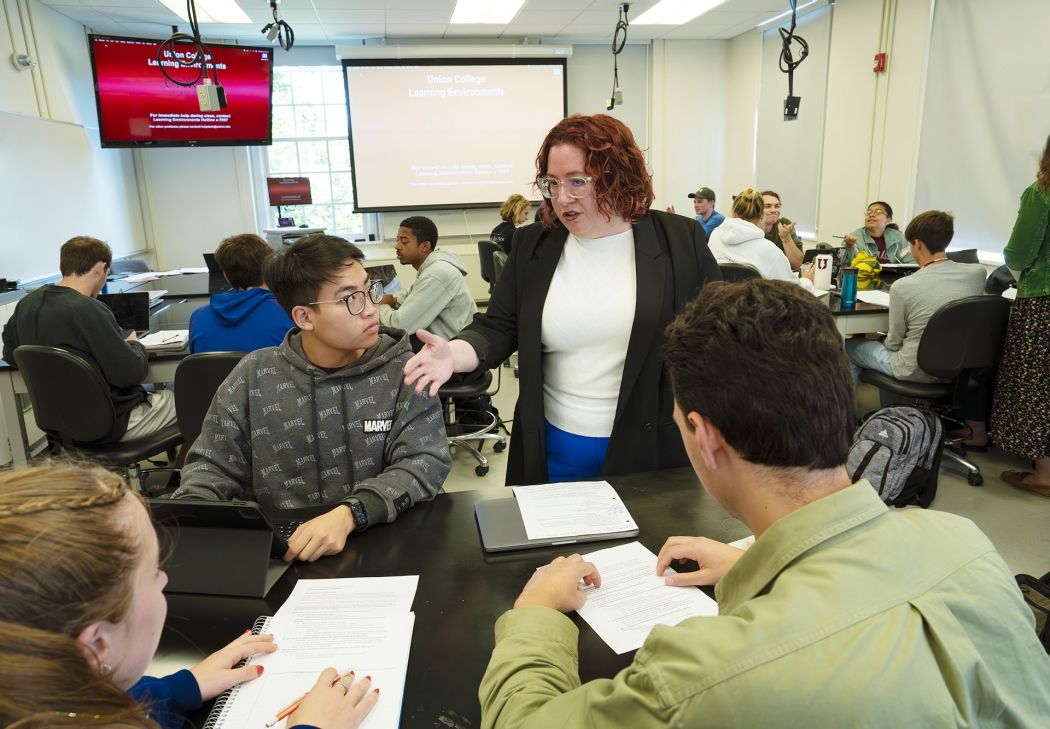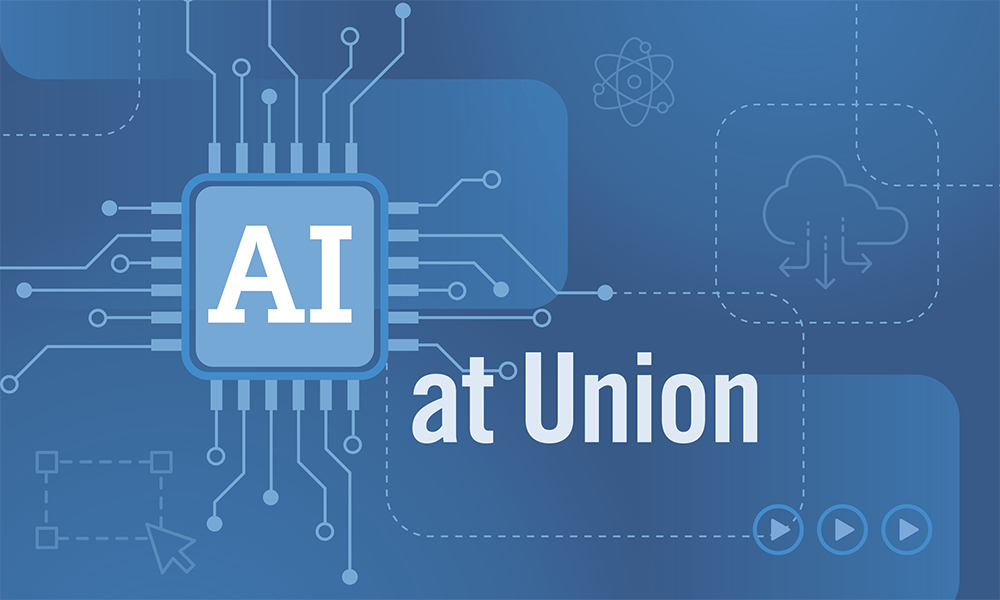
Jennifer Mitchell '04, associate professor of English, speaks with students in the Learning Environment Lab
As technology moves forward, education adapts. It always has. Evolving with the world is the only way to adequately prepare students for it, after all.
To that end, Union’s Honor Council has developed guidance around generative artificial intelligence and academic integrity – with an eye toward student process and teachable moments.
“The proliferation of AI-generated platforms has made it more challenging to produce substantiated evidence that would indicate student use of AI to create work or complete assignments,” said Michelle Osborn, dean of studies, who oversees the Honor Council. “Therefore, we are asking faculty who have concerns to engage with students in open, teachable ways.”
“They’re encouraged to ask questions to better understand the student’s process, how the student approached the assignment and the extent to which the student comprehends the material,” she continued.
If a faculty member remains worried that academic misconduct has occurred, the Honor Code instructs them to share their concerns and substaintiated evidence with the Honor Council. This body of faculty and students evaluates cases and determines consequences, if any.
Faculty are also encouraged to be clear about communicating the acceptable uses of AI, and to include their policy in the class syllabus.
“If you are allowing students to use generative AI platforms, then you need to be clear about how you want them to provide attribution,” Osborn said.
Some faculty are asking students to provide citations showing their AI prompts and responses. Others are asking students to use shared editorial documents that show the entire history of a text. These approaches can be time consuming but often help students communicate their process and demonstrate how they completed an assignment, Osborn added.
Nick Webb, an associate professor of computer science, acknowledges the difficulty of detecting the use of AI, but notes its arrival presents an opportunity to reconsider how we evaluate students.
“We may want to give assignments that allow students to show their individuality, to develop their own voice in how they make and respond to specific arguments, perhaps orally, to capture the process and show the evolution,” he said. “In college, I had to defend my code orally to a teaching assistant. I had to explain my process.”
Learn more about Honor Council guidance and artificial intelligence.

